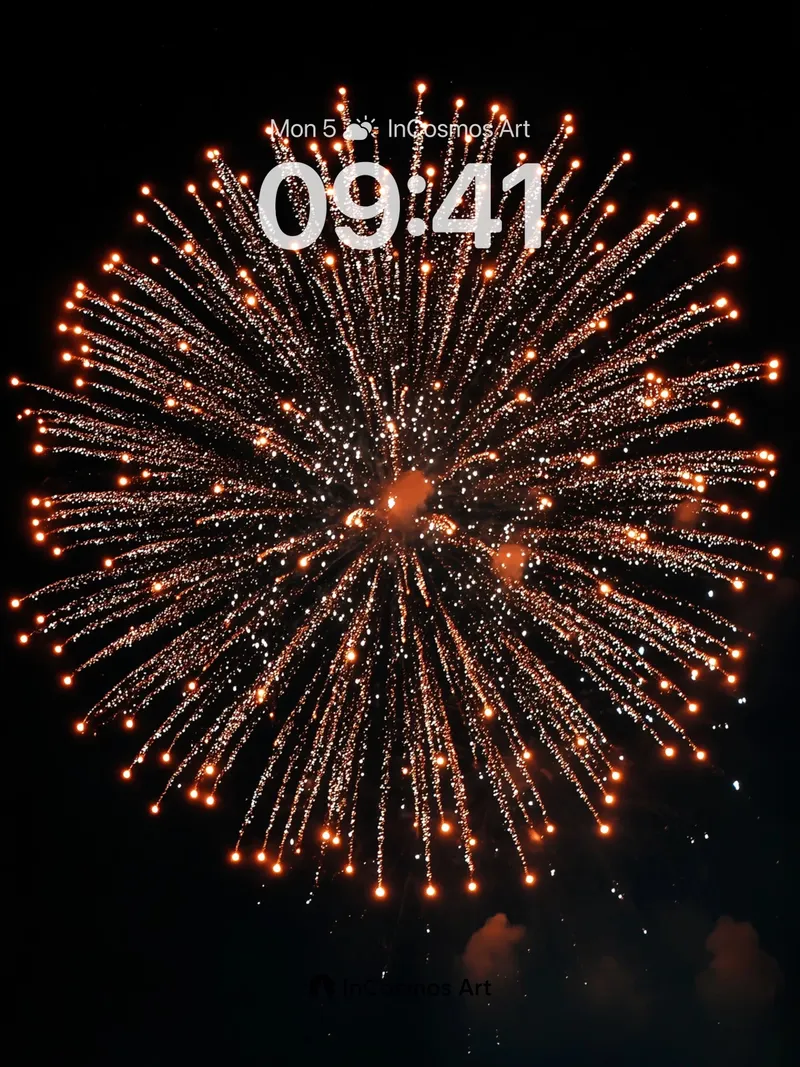The night sky is torn by points of light, sound not yet reaching the eardrum, color already preceding emotion. Each explosion is a brief birth of cosmos, gold, crimson, cyan interwoven into transient star maps. These rituals of light are neither pure entertainment nor simple celebration, but collective projections of human perception of time. In infinite darkness, they burn to inscribe presence onto the film of memory.
The Religion of Light
Fireworks are modern civilization's closest approximation to myth. They do not rely on miracles, yet create sacredness. Their ascent resembles prayer, their burst mimics nebulae, their embers falling like stars extinguishing. The city skyline becomes an altar, water a mirror reflecting dialogue between earth and heaven. People look upward not to observe, but to confirm their place within a grand narrative.
The Breath of the City
Skyscrapers reveal fragile poetry under fireworks. Glass facades reflect intertwined orange and indigo, lights and flames weaving nocturnal order. Crowds along the waterfront are silent and dense, their gazes forming invisible collective meditation. Buildings cease being mere concrete aggregates—they become living vessels hosting communal joy and silence.
Echoes of Nature
When fireworks explode above beaches, moonlight and waves form another linguistic system. Tidal rhythm resonates with pyrotechnic cadence; wet sand absorbs light spots, leaving warm traces. Here, no artificial borders exist—only emotional resonance between earth and sky. The full moon’s eruption feels like land responding to heavens, a mutual greeting without words.
Philosophy of the Instant
All splendor points toward disappearance. The meaning of fireworks lies not in duration, but in irreproducible moments. This transience grants them transcendent power. What people remember is never a specific display, but the sensation of being illuminated, nearly weightless. Every ignition is a test of eternity.






















